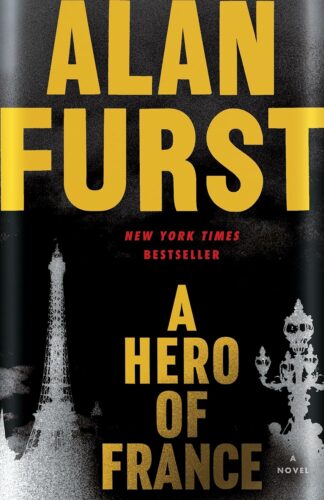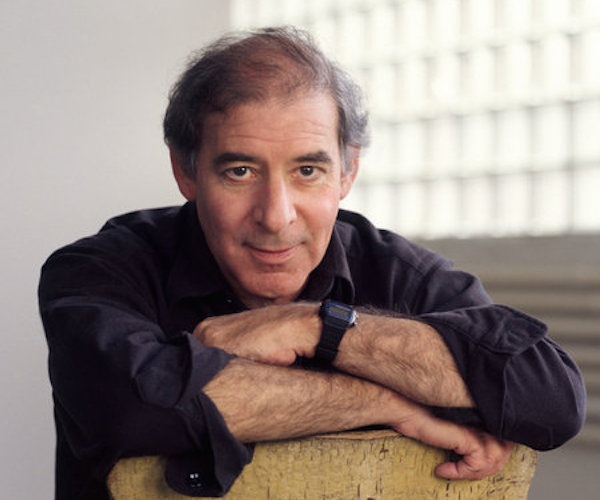Book Review: “A Hero of France” — An Insider’s Guide to the French Resistance
By Thomas Filbin
Alan Furst’s books are spy thrillers infused with a crisp, rather than a flowery, literary sensibility.
A Hero of France by Alan Furst. Random House, 234 pp. $27.

Alan Furst knows a bad thing when he sees one; Random House has released his fourteenth novel set in the dark days of the Second World War, before the Allied tide had turned, and when most of Europe was under the boot of Nazi occupation. A Hero of France is an insider’s guide to how the French Resistance actually worked, demonstrating that skill, nerve, and luck were as much an agent’s tools as valor. The speciality of the main character, code name ‘Mathieu,’ is rescuing downed British flyers and getting them through to the Vichy zone and then to Spain where they will eventually be repatriated to England to fly again. All this is easier said than done given that the Gestapo and the Wehrmacht are on the lookout for clandestine activity and punish it with a one-way ticket to a concentration camp, if one isn’t tortured to death first.
The Resistance operated in small cells where people knew one another. If an order or request came from someone else — another cell or a purported higher up — fighters were left to wonder if it is was an operative or a traitor or infiltrator. As if the Germans weren’t bad enough, there were Frenchmen willing to turn you in for a reward, or perhaps blackmail you for money to not report you. Every day Resistance fighters were one step ahead of the bloodhounds, and the lifespan of a member of the underground could be short.
The novel follows Mathieu through several missions to save pilots. He has to locate hiding places, find sympathetic French people to transport the fugitives, and look for ways to find food, clothing, and information. This takes creativity as well as luck and pragmatic know-how. Furst has done admirable research, learning how agents communicated and planned their actions. The modus operandi included meetings in cafes, messages left at safe drop points, and accumulating the money needed to to pay or bribe whoever is necessary. Downed English flyers were often injured: there was a demand for medical care, disguises, and papers. Forgers, suppliers, and people with cars were all necessary components of the Resistance’s elaborate rescue schemes.
Mathieu’s personal life is on hold for the duration and, although has a girlfriend, Joelle, he doesn’t fully confide in her lest he put her in danger. He is also emotionally enigmatic and reserved, not wanting her to be devastated should he not return from a failed mission. Mathieu is not so much an idealist as a person with both feet on the ground; the German occupation and the war are ugly realities that can’t be ignored, even at the risk of personal safety. Resistance is a duty, not a choice.
The story begins in March of 1941. The sour cold of late winter lends an aura of bleak seriousness to the missions. Furst paints Parisian scenes very well, having lived there for years as a foreign correspondent. He knows the city like a lover, deeply and unreservedly.
As the weather warms, there is temptation to breathe more easily, but this can be dangerous. Still, spring in Paris is always welcome, especially after a year of occupation: “On the third of May, Parisians left their umbrellas at home and, as they walked out into the street, turned their grateful faces to the blue, blue sky. The real, true spring had arrived, the chestnut trees were in blossom, and the Boche could do nothing about it.”
The occupation meant hardship. Food was rationed, curfews enforced, luxuries such as coffee disappeared, replaced with odd mixtures of whatever. Meat was especially scarce, in high demand by both the French citizenry and the occupying army. All manner of beasts found their way to the table. Butchers left the feet on the rabbits in their windows, a way to reassure customers of what they were buying. The cold shaped existence; there was scarcely enough coal or wood for washing or cooking. Hunger and despair were daily staples, and the once glittering capital was now reduced to a garrison town.

Author Alan Furst. Photo: Shonna Valeska.
A variety of minor characters populate the book: an aristocratic young woman wanting to help the Resistance, farmers and railroad workers willing to take risks, a cunning criminal, and a German civilian police detective sent to work with the army and convince (without success) detainees to accept freedom in return for collaboration.
Successful rescues, and the news that Hitler had broken his accord with Stalin and attacked Russia, give the French rebels hope; surely Herr Hitler has bitten off too much, and the idea that he could be defeated lifted spirits. People once again dare to think of life as it was. “Before the war, the Brasserie Heininger had been one of the merriest restaurants in Paris. Just down the street from the Place Bastille, it was all vast, gold-framed mirrors above dark red banquettes, where waiters with fin de siècle whiskers hurried among the tables, balancing bottles of champagne in ice buckets and platters of choucroute garnie on silver trays.”
The novel ends in happier days, after the liberation in August, 1944. Stories of how the Resistance worked and who was in it become public. Sometimes even those thought to be collaborators were revealed to be secret agents, doing an admirable job of playing a double game in order to be more useful.
Furst has a gift for direct, realistic dialogue. He avoids the flowery in favor of the crisp left hook. His books are spy thrillers, yes, but they are infused with a literary sensibility. What people do and what it means to others and the cause are his subjects — not just plot twists. A Hero of France is part of a popular series. If you are unfamiliar with these books you can begin anywhere; The Polish Officer and Blood of Victory are two of my favorites. Furst’s historical suspense novels are populated by high flyers, low life scoundrels, knaves, brigands, pirates, lovers, saints, and heroes — in other words, the human condition in all its depravity and its nobility.
Thomas Filbin’s reviews have appeared in The New York Times Book Review, The Boston Globe, and The Hudson Review.
Tagged: A Hero of France, Alan Furst, France, French Resistance, Thomas Filbin, historical fiction

Thomas–thanks for your review. Just wanted your readers to know that if they’d like to try the book before they buy it, they can find a free copy in their local library at http://www.readlibre.com/aherooffrance. Hope that helps.